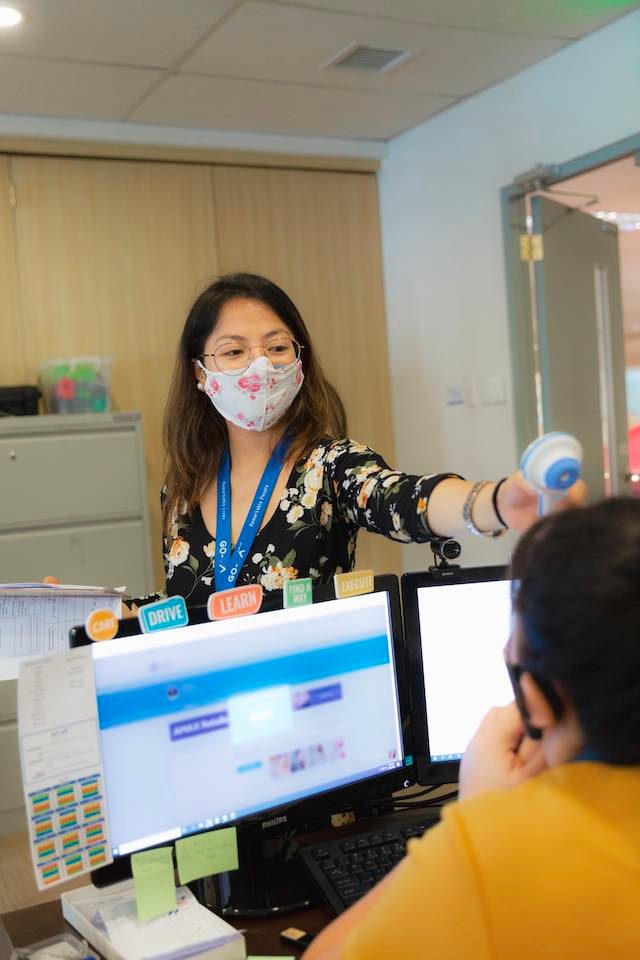SUMMARY
This is AI generated summarization, which may have errors. For context, always refer to the full article.


For 7 weeks now, I have spent practically all of my time in the office.
I’ve been living in the place where I work in Cebu City, along with some 80 teammates who have chosen to camp out in the office since enhanced community quarantine (ECQ) began last March 28. (READ: Metro Manila, Cebu City, Laguna under ‘modified’ ECQ until May 31)
Has it been easy? No.
Has it been worth it? Categorically, yes.
A few weeks ago, some news reports (first in a newspaper in Cebu and then in a TV news program in Australia) painted a grim picture of what was happening in some business process outsourcing companies that had arranged for some employees to live on-site. (READ: Rappler Talk: How BPOs, human resources are dealing with coronavirus)
I sincerely wish the claims about supposedly “subhuman” conditions in one office, in particular, aren’t true. Or that they don’t present the full picture.
Because what I’ve seen, at least where I work (and now, for the most part, live) has been nothing short of remarkable.
On the night after I had read that story about the “potentially unsafe conditions” where call center workers lived “to help Australian customers,” I passed by a group of team members who were unwinding after dinner.
And they were singing, laughing, and relaxing.
Why we’re staying in
At that point, we had been living in quarantine for a full month. I knew that everyone on the team missed their families. For some, it was the first time they had spent Easter away from their loved ones.
From the beginning, we had talked about why, for some, staying on-site would make sense:
-
It would allow us to protect elderly and other at-risk family members, who would otherwise be exposed to us if we chose to commute from work in Cebu City to our homes every day.
-
For many, that option to go home disappeared after March 28, when the borders between Cebu City and its neighboring cities closed.
-
Staying on-site would help us stay more productive and focused, because we wouldn’t have to worry about power cuts or sluggish internet connections.
The fight against this pandemic has economic frontlines, as well. That’s where workers and business owners in exempted industries have been fielded.
Whether they work from home or live on-site, our teams have faced some tough conditions. They have had to wrestle with uncertainty.

Yet their commitment and their grace continue to inspire me. I couldn’t be prouder of them.
When we started Go Virtual Assistants (GO-VA) 6 years ago, I wasn’t a big fan of the idea of working from home. Having worked with freelancers from two other countries before, I knew there would always be that risk of people disappearing on you. We wanted GO-VA’s clients, who are business owners in Australia, the United States, the UK, and Singapore, to feel like they had just extended their offices to the Philippines. (READ: [OPINION] Our BPO workers are essential in this pandemic)
That they hadn’t lost control, the way they would if they worked with some larger outsourcing providers.
Never a better time for gratitude
Since this pandemic started, the team and I have repeatedly talked about the need to focus on the things we can control – like taking action to protect those around us from harm. Or reminding ourselves and our friends about what we’re grateful for.
Each Saturday during the on-site team’s huddle, we start by talking about the one thing from the past week that we are most grateful for. It’s an idea our Chief Happiness Officer Michelle Signe introduced.
It’s one of the most powerful examples I’ve seen of how deliberate gratitude can keep us calm and yes, even joyful, in the most challenging situations. I wish you could see it for yourself.
Not long after she moved to Cebu in May 2015, my sister Fiona Kesby, who is GO-VA’s CEO, suggested that we add two core values to our original 5. These were acting with humility and actively sharing gratitude.
I’m not saying these last 7 weeks of “summer camp” have been easy. I thought the shower situation would be more difficult than it has turned out to be. When the Cebu City Health Department sent an inspection team, we were a bit tense – although that turned out much better than we had expected, and all of the team’s preparation and hard work served us in good stead.
Every time the local authorities extended the quarantine period (and that has happened thrice, so far), we would suffer homesickness more acutely.
Overall, though, the joy and gratitude I’ve seen have deeply moved me.
We started GO-VA in Cebu 6 years ago because we felt there was something in our Australian and the team’s Filipino culture that would allow levels of engagement and morale that I had never seen before.
All of this year’s challenges have not changed that conviction. Our team keeps proving they are brave, resilient, and remarkable human beings. – Rappler.com
Matt Kesby founded Go Virtual Assistants, Inc. in May 2014 in Cebu City and now serves as its head of execution and software product delivery. In October 2019, he and his family moved to Cebu City. He is a former execution practice leader for FranklinCovey in Australia and New Zealand.
Add a comment
How does this make you feel?
There are no comments yet. Add your comment to start the conversation.